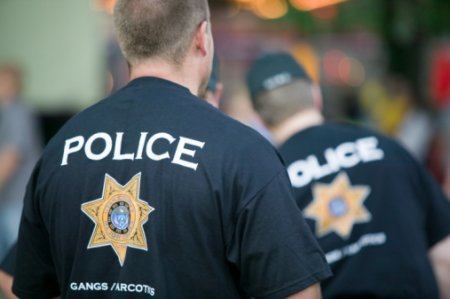Why is drug trading & human trafficking flourishing?
As we all aware that drugs trading is the largest criminal business in the world, however, the second – largest criminal business is human trafficking. If you’ve heard that the illegal drug trade and human trafficking operations are working together, you may be on to something. These two industries tend to work side by side within the criminal underground, and understanding the role drugs play in enabling modern slavery is quite complex.
Human trafficking not only crosses national and international borders, but also surfaces at the street level. Local law enforcement agencies often are the first to come into contact with this covert crime. As first responders, law enforcement agencies play a critical role in identifying and responding to human trafficking cases.
The success of task forces was based on each member having something different to offer; being able to work together by getting to know, understand, and trust each other; and creating awareness of human trafficking within their own communities.
Signs of human trafficking – A person being trafficked may have unusual injuries or an illness that can’t be explained. They may not be able to talk to someone without a third person being present – so the trafficked person can’t speak openly and honestly about what’s happening to them. They can’t choose where they live, and someone else keeps their identification cards, passport, visas, etc.
People who survive a disaster may lose their homes, their possessions, or their jobs, and be vulnerable to disease or starvation. Traffickers may take advantage of these people’s desperation by promising them food and shelter, or they may simply force or threaten these vulnerable people into trafficking.
Human trafficking – It is the recruitment, transportation, transfer, harboring, or receipt of humans through force, fraud, or deception, with the intention of exploiting them for profit. Men, women, and children of all ages and backgrounds can become victims of human trafficking, which transpires in every area of the world. Trafficking of illegal drugs and human trafficking often happen together. Drug traffickers may also be transporting people as another source of money.
Human traffickers may also force their victims to smuggle drugs across borders. Human traffickers can use drugs as “bait” to recruit people who have a substance use disorder. Or they can use drugs to force a victim to obey their orders, or work harder or for longer hours. Human traffickers often seek out people with substance use disorders and promise them unlimited drugs as a way to keep them under control. Addiction is a human trafficker’s most powerful tool.
Participants responded to the challenge of identifying the population from which trafficking victims are reported. Impoverished youth that become involved in the foster care system, as well as youth that come into the system through delinquent behavior, were named. Children who are placed in group homes were said to be at risk of being recruited for sex trafficking by others in the group home. Runaways were cited as one of the main avenues to victimization by traffickers. Victims were said to be from all socioeconomic backgrounds with recruitment often linked to internet and social media use.
Addiction was a major theme, with parental and victim addiction being equally problematic. Participants stated many times parents who traffic their children do so for drug money. A portion of the children trafficked were also reported to have addiction issues, which fuel their need for money to buy drugs.
Participants described a diverse, wide range of victims. Labor, trafficking victims were reported to have recovered in the hospitality industry, agricultural industry, nail salon and domestic workers. Children both in foster care and transitioning out of foster care, as well as children trafficked by their families, were discussed. Building on this situation was a discussion about drug use and addiction. Many of the families who traffic their kids were said to have addiction issues which were satisfied by money gained from trafficking of their children. Some children were described as also having addiction issues and this being the reason for their vulnerability to traffickers. The homeless population, as well as LGBTQ kids who become a part of this population because of family dynamics, were identified as potential victims.
Several adult survivors were participants and throughout the day made several suggestions from their unique perspective. Some became trafficking victims as children, some entered into prostitution as adults and eventually became trafficking victims. Law enforcement has a challenge if a child can be recovered with a trafficker but won’t disclose.
Detecting human trafficking crimes is still a big challenge to federal investigators and prosecutors. Organized crime groups that are involved in sex trafficking activities use many complicated techniques to keep themselves concealed and safe from law enforcement as well as dangerous buyers.
CALL US TODAY
For a free initial phone consultation with an experienced Louisiana attorney, call me today at 504-610-5645, or fill out the contact form. I return all messages promptly.
OFFICE LOCATION
1966 N Hwy 190 Suite A
Covington, LA 70433
(504) 610-5645
(844) 272-1106 (fax)


